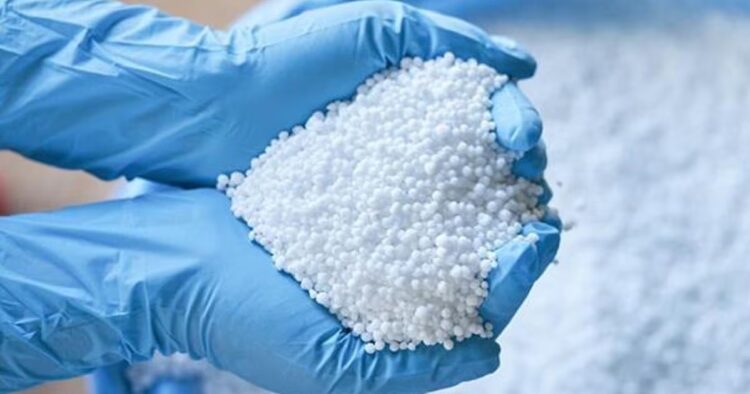Bharat is on track to achieve self-sufficiency in urea production by the end of 2025, announced Union Minister Mansukh Mandaviya. With a focus on boosting domestic manufacturing, the government aims to eliminate urea imports. Mandaviya highlighted efforts to promote alternative fertilizers like nano-liquid urea and nano-liquid di-ammonium phosphate (DAP) as part of this strategy.
The government’s initiatives include reviving closed urea plants and increasing domestic production capacities. Currently, Bharat needs around 350 lakh tonnes of urea annually, with domestic production capacity rising to approximately 325 lakh tonnes after the commissioning of a new plant. Mandaviya emphasized Prime Minister Modi’s commitment to ending urea import dependency, which would result in a zero import bill for urea.
In recent years, Bharat has witnessed a decline in urea imports, dropping to 75.8 lakh tonnes in 2022-23 from 91.36 lakh tonnes in 2021-22. The government’s efforts to boost domestic production include dedicating new fertilizer plants, such as the Hindustan Urvarak & Rasayan Ltd (HURL) Sindri Fertiliser Plant, and continuing the Urea Subsidy Scheme.
Pilibhit, Uttar Pradesh: PM Narendra Modi says, "Until 10 years ago, there used to be black marketing of urea, farmers had to face baton charges. Today urea is adequate and consistently available." pic.twitter.com/f8B27c4sMK
— IANS (@ians_india) April 9, 2024
The Modi government took immediate action to enhance urea production upon assuming power. Initiatives such as reviving closed urea plants and mandating 100% neem coating for urea aimed to ensure a steady supply and prevent illegal diversion. The decision to reform Bharat’s urea policy in 2014, including neem coating, effectively eradicated urea shortages.
Addressing historical challenges, the Modi government confronted issues of black marketing and corruption in the urea sector. Prime Minister Modi highlighted the contrast between past urea shortages and the current scenario of adequate and affordable urea availability. The government’s commitment to fair distribution and tackling corruption is evident in measures such as urea subsidy schemes.
Instances of black marketing and corruption in urea distribution during previous administrations, particularly under Congress-led governments, have been documented. The Modi government’s efforts to rectify these issues have been highlighted in Mansukh Mandaviya’s book “Fertilizing the Future.”
The government’s proactive approach to addressing urea shortages and corruption in the sector reflects its commitment to agricultural development and farmer welfare. With ongoing initiatives to boost domestic production and promote alternative fertilizers, Bharat is poised to achieve self-sufficiency in urea production, ensuring a stable supply and affordable prices for farmers nationwide.

















Comments